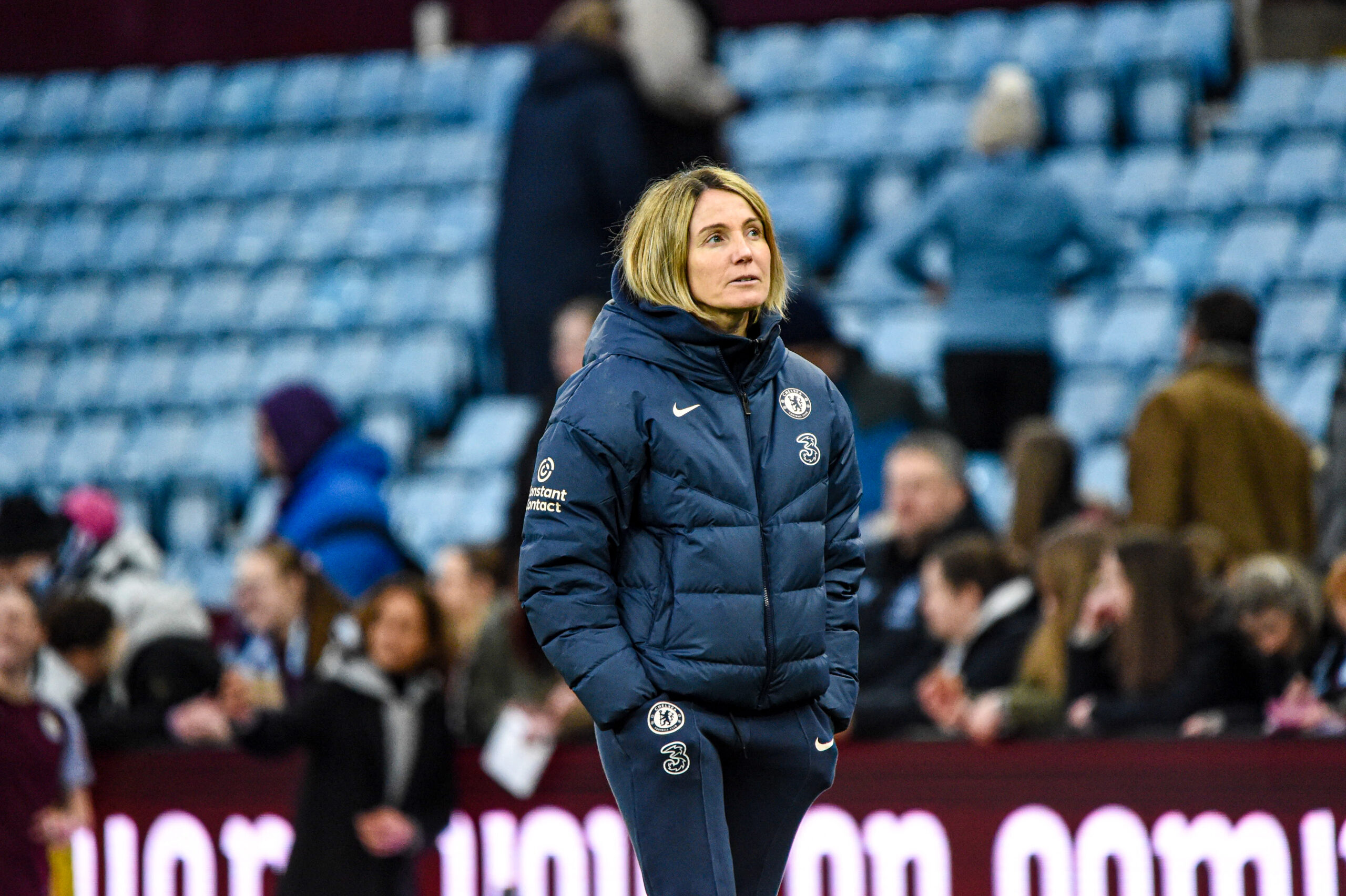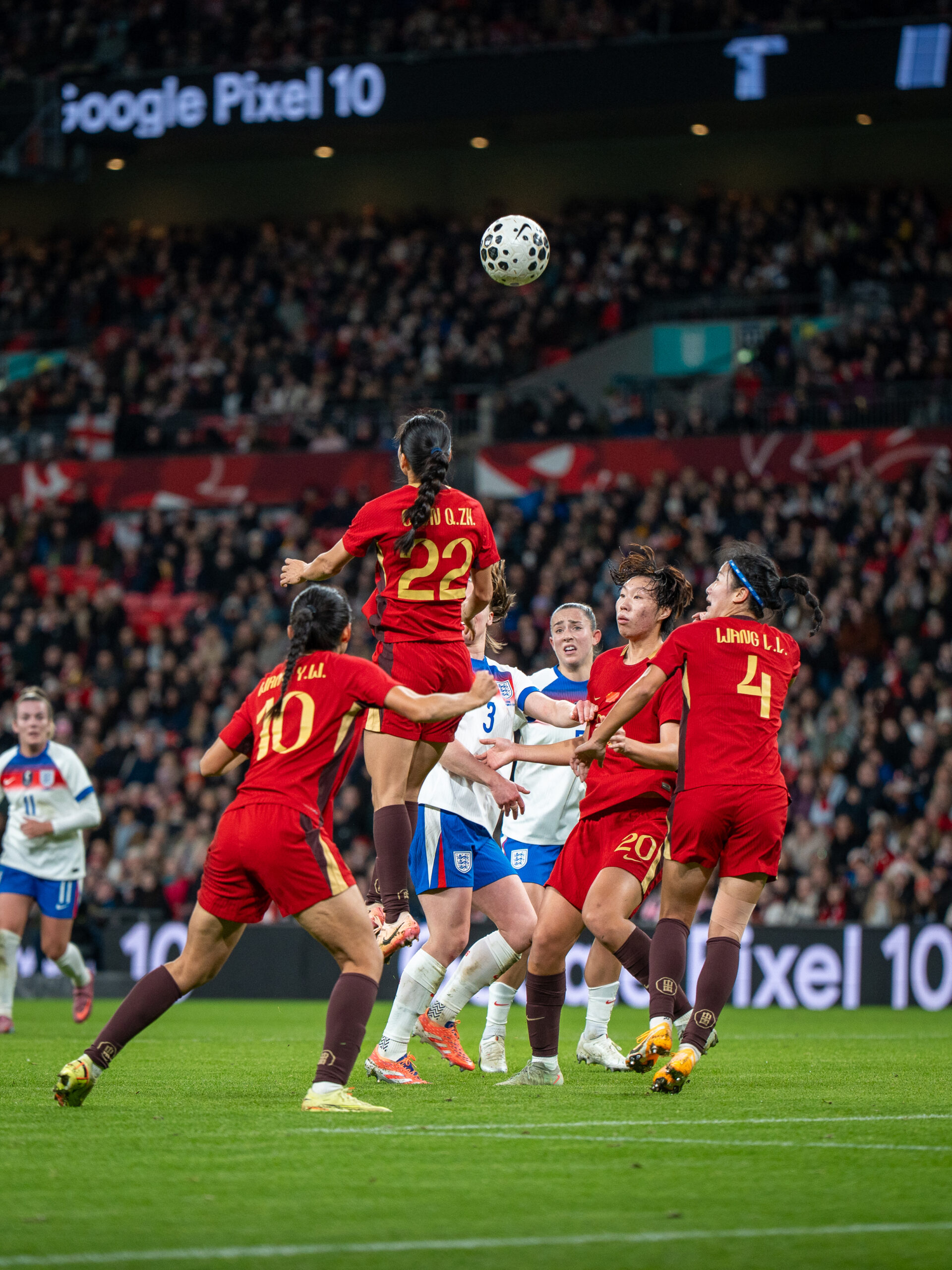“Do you think it’s possible to be a mum of four kids and being a manager for a high club?“
The very first question Sonia Bompastor was asked when inquiring about taking on a manager or head coach position.
Upon a four year deal, Bompastor took over the prestigious position of Head Coach for Chelsea Women FC, after the departure of former coach Emma Hayes who served twelve years for the club.
Chelsea Women currently hold the record breaking number of eight Women’s Super League titles. Since her appointment as head coach in November 2024, Bompastor has guided the team to an unbeaten Women’s Super League title.
The French manager began her coaching career at Lyon’s academy, where she remained for eight years after her retirement from playing football in 2013. She then advanced her career by becoming the first female manager of Les Fenottes in April 2021, leading the team to Women’s Champions League glory with a 3-1 victory over Barcelona.
Bompastor added to the club’s accolades by securing three consecutive Division 1 titles in the 2021–22, 2022–23, and 2023–24 seasons.
Notably, in the 2022–23 Women’s Champions League, her Lyon side reached the quarter-finals but were eliminated with a 3-2 aggregate defeat to her current team, Chelsea WFC.
Alongside her football career, Sonia Bompastor is a mother to four children with her partner of 13 years, Camille Abily.
Given her impressive career as both a player and a coach, it was all the more shocking that the first question she faced in an interview was:
“Do you think it’s possible to be a mother of four and still manage a top club?”
This question highlights that despite how far the women’s game has come, sexism still exists against female players, coaches and those involved in the sport, as Sonia Bompastor then goes on to raise the statement of
“I think if you have a man in front of the same people, they will never ask that question.”
Women in Sport conducted a survey upon this issue, finding that discrimination against women working within the game is still ‘persistent and widespread’.
It revealed that ‘4 in 5 women report sexism’ within the workplace of football.
It also explains how the systems in place against discrimination against women are ‘ineffective’.
Adding that:
“56% added that no action had been taken after reporting gender-based discrimination in the workplace.”
Yvonne Harrison, CEO of Women in Football, explains this further:
“They are not just numbers: they are the lived experiences of people working in the game, and they deserve better. If the industry is to change, we need to recognise these hard truths.”
“We can safely assume that the real levels of discrimination are even higher, with a third of female respondents stating they had not reported incidents due to a lack of faith and trust in workforce processes, or for a fear of retribution.”
This raises the important point that women need to be “supported, valued, and recognised” across women’s football and sport as a whole.
Although the game has grown massively, we need to act and break down the barriers and discrimination still present within the sport we all treasure.



